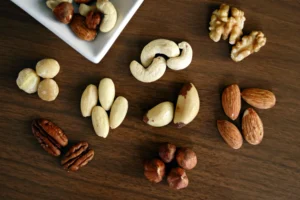Generated by Contentify AI

Introduction
The role of hydration in performance is a critical aspect that should not be overlooked. Ensuring that the body is adequately hydrated is essential for maintaining optimal physical and cognitive function. Proper hydration supports various bodily functions, including regulating body temperature, lubricating joints, delivering nutrients to cells, and removing waste products. Athletes, in particular, need to pay close attention to their hydration status as even mild dehydration can significantly impact performance. Therefore, staying well-hydrated is not only important for overall health but also for maximizing athletic performance.
The Importance of Hydration for Physical Performance
Importance of Hydration for Physical Performance
Proper hydration is crucial for optimal physical performance. Water plays a significant role in regulating body temperature, maintaining blood volume, and transporting nutrients and oxygen to the muscles. Dehydration can lead to fatigue, muscle cramps, and a decrease in overall performance. It’s important to replenish fluids lost through sweating during exercise to ensure the body functions at its best. Athletes and active individuals must prioritize staying hydrated to enhance their physical abilities and endurance.
Signs and Symptoms of Dehydration
The Signs and Symptoms of Dehydration are crucial indicators that your body is not receiving adequate hydration. These signs may include dry mouth, dizziness, headache, and dark yellow urine. It’s essential to pay attention to these symptoms and take action to replenish your body’s hydration levels. By recognizing and addressing these signs early, you can ensure that your body is functioning at its optimal level and avoid the negative impacts of dehydration on performance. Be mindful of these signals and make hydration a priority to support your overall well-being and performance.
Best Hydration Practices for Athletes
Hydration is a critical aspect of athletic performance. The best hydration practices for athletes can mean the difference between success and failure on the field or court. Proper hydration ensures that the body can function at its highest level, allowing athletes to perform at their best. From replenishing electrolytes to maintaining fluid balance, the role of hydration in performance cannot be overstated. Athletes must be mindful of their fluid intake before, during, and after workouts or competitions to optimize their performance. By incorporating hydration into their training regimen, athletes can stay sharp, focused, and energized, giving them the edge they need to excel in their sport.
Hydration Strategies for Optimal Performance
In the “Hydration Strategies for Optimal Performance” section of “The Role of Hydration in Performance,” we delve into the critical aspect of maintaining proper hydration for maximizing physical and cognitive performance. Through a detailed exploration of various hydration strategies, we aim to provide a comprehensive understanding of the role of hydration in achieving optimal performance. Whether it’s discussing the importance of fluid intake, electrolyte balance, or the impact of dehydration on performance, our aim is to inform and empower individuals to effectively manage their hydration levels for peak performance. With a blend of professional insights and a touch of wit, we strive to make the topic both engaging and enlightening, offering practical advice and clever tips to help individuals stay at the top of their game.
The Relationship Between Hydration and Cognitive Function
The relationship between hydration and cognitive function is a crucial aspect of understanding the impact of hydration on overall performance. Research has shown that even mild dehydration can impair cognitive performance, affecting attention, memory, and mood. Adequate hydration is essential for maintaining optimal cognitive function throughout the day, especially during tasks that require mental focus and concentration. By staying adequately hydrated, individuals can potentially enhance their cognitive abilities and maintain peak performance levels.
Conclusion
Water is much more than just a thirst quencher; it plays a vital role in our overall performance, particularly in physical activities. From improving endurance to enhancing cognitive function, proper hydration is essential. There’s a common belief that only excessive sweating leads to dehydration while, in reality, even a slight reduction in water levels can impair performance. Hydration is not just about drinking enough water; it’s about maintaining the delicate balance of electrolytes, such as sodium and potassium, which are crucial for optimal muscle function and nerve transmission. In essence, hydration is the unsung hero that can make or break our performance in various activities, making it a non-negotiable factor for achieving peak performance.






